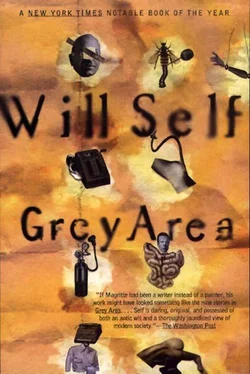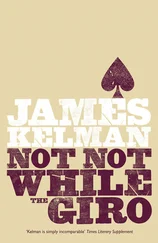One other word of warning before you set out. Don’t be deceived by the map into thinking that distances of, say, eight to ten miles represent a comfortable afternoon’s stroll. The Lizard is so called because of the many rocky inlets that are gouged out of its scaly sides, giving the entire landmass the aspect of some giant creature, bound for the Atlantic vivarium. The coastal path is constantly either ascending or descending around these inlets. Therefore, to gain a mile you may have to go up and down as much as six hundred feet.
I myself haven’t been to the Lizard for many years, in fact not since I was a young man. Even if I felt strong enough to make the journey now, I wouldn’t go. For those younger than I, who cannot remember a time before the current Nationalist Trust Government took power, the prospect may still seem inviting. But personally, I find that the thought of encountering the Government’s Brown Shirts, with their oak-leaf epaulettes, sticks in my craw. I would bitterly resent being compelled by these paramilitary nature wardens to admire the scenery, register the presence (or even absence) of ancient monuments, and propitiate the wayside waste shrines with crumpled offerings.
Of course, we aren’t altogether immune from the depredations of the Trust here in Beaconsfield. Last month, after a bitterly fought local election, they gained power in almost all of the wards, including the one that contains the model village itself. There have been rumours, discreet mutterings, that they intend to introduce their ubiquitous signs to the village. These will designate parts of it areas of (albeit minute) ‘outstanding natural beauty’.
But I am old now, and have not the stomach for political infighting. Since the publication of the last volume of my magnum opus, A History of the English Motorway Service Centre, I have gained a modest eminence. People tell me that I am referred to as ‘the Macaulay of the M40’, a sobriquet that, I must confess, gives me no little pleasure. I feel vindicated by the verdict of posterity. (I say posterity, for I am now so old that hardly anyone realises I am still alive.)
I spend most my the days out on the sun porch. Here I lie naked, for all the world like some moribund reptile, sopping up the rays. My skin has turned mahogany with age and melanoma. It’s difficult for me to distinguish now between the daub of cancerous sarcoma and the toughened wattle of my flesh. Be that as it may, I am not frightened of death. I feel no pain, despite having long since reduced the indulgence of my pernicious habituation to kaolin and morphine to a mere teaspoonful every hour.
With age have come stoicism and repose. When I was younger I could not focus on anything, or even apprehend a single thought, without feeling driven to incorporate it into some architectonic, some Great Design. I was also plagued by lusts, both fleshly and demonic, which sent me into such dizzying spirals of self-negation that I was compelled to narcosis.
But now, even the contemplation of the most trivial things can provide enough sensual fodder to last me an entire morning. Today, for example, I became transfixed, staring into the kettle, by the three separate levels of scale therein. First the tangible scale, capping the inverted cradle of the water’s meniscus. Secondly, the crystalline accretions of scale that wreathed the element. And thirdly, of course, the very abstract notion of ‘scale’ itself, implied by my unreasoned observation. It’s as if I were possessed of some kind of Escher-vision, allowing me constantly to perceive the dimensional conundrum that perception presents.
I am also comforted in my solitude by my pets. One beneficial side-effect of the change in climate has been the introduction of more exotic species to this isle. But whereas the nouveaux riches opt for the Pantagruelian spectacle of giraffes cropping their laburnums, and hippopotamuses wallowing in their sun-saturated swimming pools, I have chosen to domesticate the more elegant frill-necked lizard.
This curious reptile, with its preposterous vermilion ruff, stands erect on its hind legs like a miniature dinosaur. When evening comes, and the day’s visitors have departed, I let it out so that it may roam the lanes and paths of the model village. The sight of this pocket Godzilla stalking the dwarfish environs, its head darting this way and that, as if on the look-out for a canapé-sized human, never fails to amuse me.
However, not every aspect of my life is quite so easeful and reposed. The occasional dispute, relating to a lifetime of scholarly endeavour, still flares up occasionally. It is true that my work has a certain status here in England, but of course all this means in practice is that although many have heard of it, few have actually read any of it.
In the ex-colonies the situation is different. A Professor Moi wrote to me last year, from the University of Uganda, to dispute the findings of my seminal paper ‘When is a Road Not a Road?’*, in which — if you can be bothered to recall — I established a theory that a motorway cannot be said to be a motorway unless it is longer than it is broad. I was inspired to this by my contemplation of the much maligned A41 (M), which at that time ran for barely a mile. Moi took issue with the theory, and after I had perused the relevant Ugandan gazetteer it became clear to me why.
The ill-fated Lusaka Bypass was to have been the centre-piece of the Ugandan Government’s Motorway Construction Programme. However, resources ran out after only one junction and some eighty feet of road had been built. Faced with the options of either changing the nomenclature or admitting failure, the Ugandans had no alternative but to take issue with the theory itself.
But such episodes are infrequent. Mostly I am left alone by the world. My children have grown up and disappointed me; my former friends and acquaintances have forgotten me. If I do receive any visitors nowadays, they are likely to be young professional couples, nascent ex-urbanites, come to enquire whether or not the bungalow is for sale.
It is a delicious irony that although when I first moved to Beaconsfield the bungalow was regarded as tacky in the extreme, over the years it has become a period piece. The aluminium-framed picture windows, the pebbledash façade, the corrugated-perspex carport: all of these are now regarded as delightfully authentic and original features. Such is the queer humour of history.
And what of the M40 itself, the fount of my life’s work? How stands it? Well, I must confess that since the universal introduction of electric cars with a maximum speed of 15 mph, the glamour of motorway driving seems entirely lost. Every so often I’ll take the golf buggy out and tootle up towards Junction 5 (Stokenchurch), but my motives are really rather morbid.
Morbid, for it is here that I am to be buried. Here, where the motorway plunges through a gunsight cutting and the rolling plain of Oxfordshire spreads out into the blue distance. Just beyond the Chiltern scarp the M40 bisects the Ridgeway, that neolithic drovers’ path which was the motorway of Stone Age Britain. It is here that the Nationalist Trust has given gracious permission for me to construct my mausoleum.
I have opted for something in the manner of an ancient chamber tomb. A long, regular heap of layered stones, with corbelled walls rising to a slab roof. At one end the burial mound will tastefully elide with the caisson of the bridge on which the M40 spans the Ridgeway.
It is a fitting memorial, and what’s more, I am convinced that it will remain long after the motorway itself has become little more than a grassed-over ruin, a monument to a dead culture. The idea that perhaps, in some distant future, disputatious archaeologists will find themselves flummoxed by the discovery of my tomb, together with its midden of discarded motorway signs, brings a twitch to my jowls.
Читать дальше












